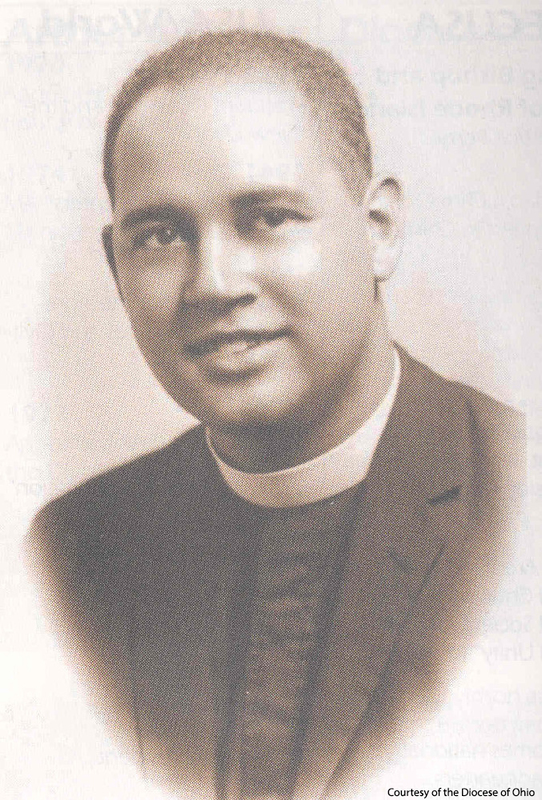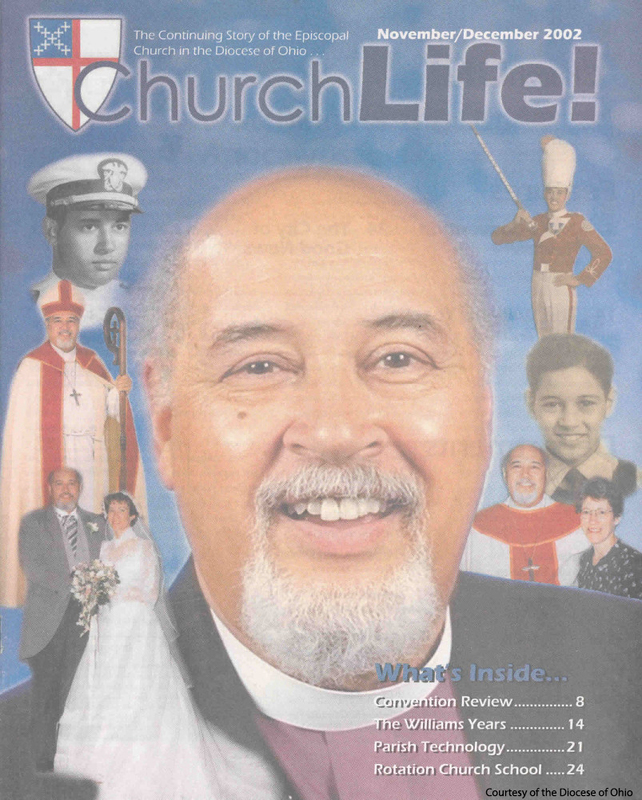Leadership Gallery
The Right Reverend Arthur Benjamin Williams, Jr., 1935-
Bishop Williams has had an active ministerial career beginning as an assistant rector in Rhode Island and ending as the first African American bishop for the Diocese of Ohio. Throughout his long career, Williams was deeply interested and involved in the life and development of parishes, in the pastoral care for other clergy and their families, and issues concerning urban ministry and racism.
In 1935 Williams was born in Providence, Rhode Island where he graduated from Brown University with his bachelor’s degree in 1957. His upbringing in the tradition of the Episcopal Church instilled in him a call to the priesthood. The bishop of his diocese, however, discouraged him from this pursuit, feeling that most parishes would not accept a Black priest. With this in mind, Williams joined the Navy and became an officer. Upon leaving the Navy, he pursued an undeterred desire to be a priest and went on to earn a degree from General Theological Seminary. In 1964 he was ordained a deacon and made a priest the following year. His first assignment was that of assistant at Saint Mark’s Church in Riverside, Rhode Island. Sensing a call to urban ministry, Williams transferred to Grace Church in Detroit, Michigan in 1968. It was not long before he was appointed the Assistant to the Bishop for Ministry, Deployment, and Urban Affairs for the Diocese of Michigan in 1970.
By the time Williams arrived in Detroit, he had a great deal of experience with urban social justice and racial issues. In Providence, Rhode Island he demonstrated for fair housing and busing. While at seminary, he witnessed racial prejudice in the Episcopal Church when Southern bishops threatened to withdraw their students if they were required to room with Black seminarians. In Detroit, Williams saw first hand the violence and devastation that racial injustice could fuel when riots broke out in his parish neighborhood in 1967, killing dozens and injuring many more African Americans.
Arthur Williams’ feature in the November/December 2002 edition of Church Life!, the official publication of the Diocese of Ohio.
These experiences galvanized Williams’ resolve to awaken people to the nature of their own participation in racism and its pervasiveness. Upon going to the Diocese of Ohio as archdeacon in 1977, he was given oversight of missions and aided parishes. He also established a local chapter of the Union of Black Episcopalians, developed the division of urban ministries, and spoke widely around the diocese on issues of racial justice.
In 1986 Williams was consecrated the first African American suffragan bishop of the Diocese of Ohio. In this position his involvement in social and racial issues moved to new levels of prominence. He was the chair of the Episcopal Committee for Black Ministry (1988-1990), on the House of Bishops’ Committee to End Racism (1993-2000), the chair of the Justice, Peace and Integrity of Creation Committee of the Executive Council (1994-1997), and the chair of the Commission on Human Sexuality (2000).
Williams had a distinguished career in other areas within the Episcopal Church as well. He was a member of the Joint Standing Committee on Program, Budget, and Finance (1980-1991) and a trustee for the General Theological Seminary (1979-1988). As archdeacon, he served as a member of the Executive Council, as a General Convention Deputy (1979-1985), and on the Advisory Committee for the House of Deputies (1980-1985). After his consecration, he became the vice president of the House of Bishops (1995-2003), served as the chair of the Editorial Committee in preparing the African American hymnal Lift Every Voice and Sing II, and was a member of the Prayer Book and Liturgy Committee (1991-2000). Bishop Williams retired as diocesan in 2002 and currently serves on the Presiding Bishop’s staff as the Director of Ethnic Congregational Development. [Sources]



